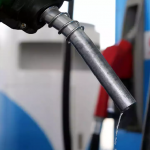The Karachi electricity consumers will finally be waking up to the reality of the thing called monthly ‘fuel charges adjustment’. Nepra, the other day announced the schedule for collecting FCA from K-Electric consumers for three years starting from July 2016 to June 2019. The said collection has been broken in parts so as to lessen the burden at once – and will be collected over next nine months starting January 2020.
So the FCA averages Rs1.32 per month to be collected over nine months. The average comes down to Rs0.33 per unit, when spread over 36 months, on which it is actually based. Surely, 33 paisas per unit spread over three years just sounds better than four times more to be collected in nine months. FCA, mind you, spares none other than those using under 50 units. In fact, it is designed such that in case of negative adjustment, it excludes those consuming up to 300 units. Thankfully for the consumers, there are not any negative adjustments in the collection schedule.
The total impact tin monetary terms would be around Rs17-18 billion, based on recent consumption trends for the months in question. The KE unit consumption should range between 13 to 14 billion units in the nine months beginning January 2020. It remains unclear how the new FCAs arising after June 2019 will be dealt with. Ideally, this should be an automatic adjustment, but then, things have been far from ideal in terms of power tariffs. The arrangement with the IMF does talk about streamlining and automating the entire process of tariff notification, FPAs and tariff delays – and KE should well be part of the plan, given it receives tariff differential subsidy in excess of rS50 billion every year, from the federal kitty.
What should be of concern to Nepra and those doling out cash subsidy year after year in the name of inter disco tariff differential, is the visible difference between the monthly adjustments of KE with those at state-owned discos. The 36 months from July 2016 give a sum of Rs11.87 per unit to be adjusted – which accounts for instances of negative adjustment. The FPA amount for state-owned discos during the same period stands at negative Rs28 per unit. This goes on to show how KE has lagged well behind the curve in terms of improving the power generation fuel mix, and that puts an unwanted burden on the paying public and the government which bears the subsidy.







